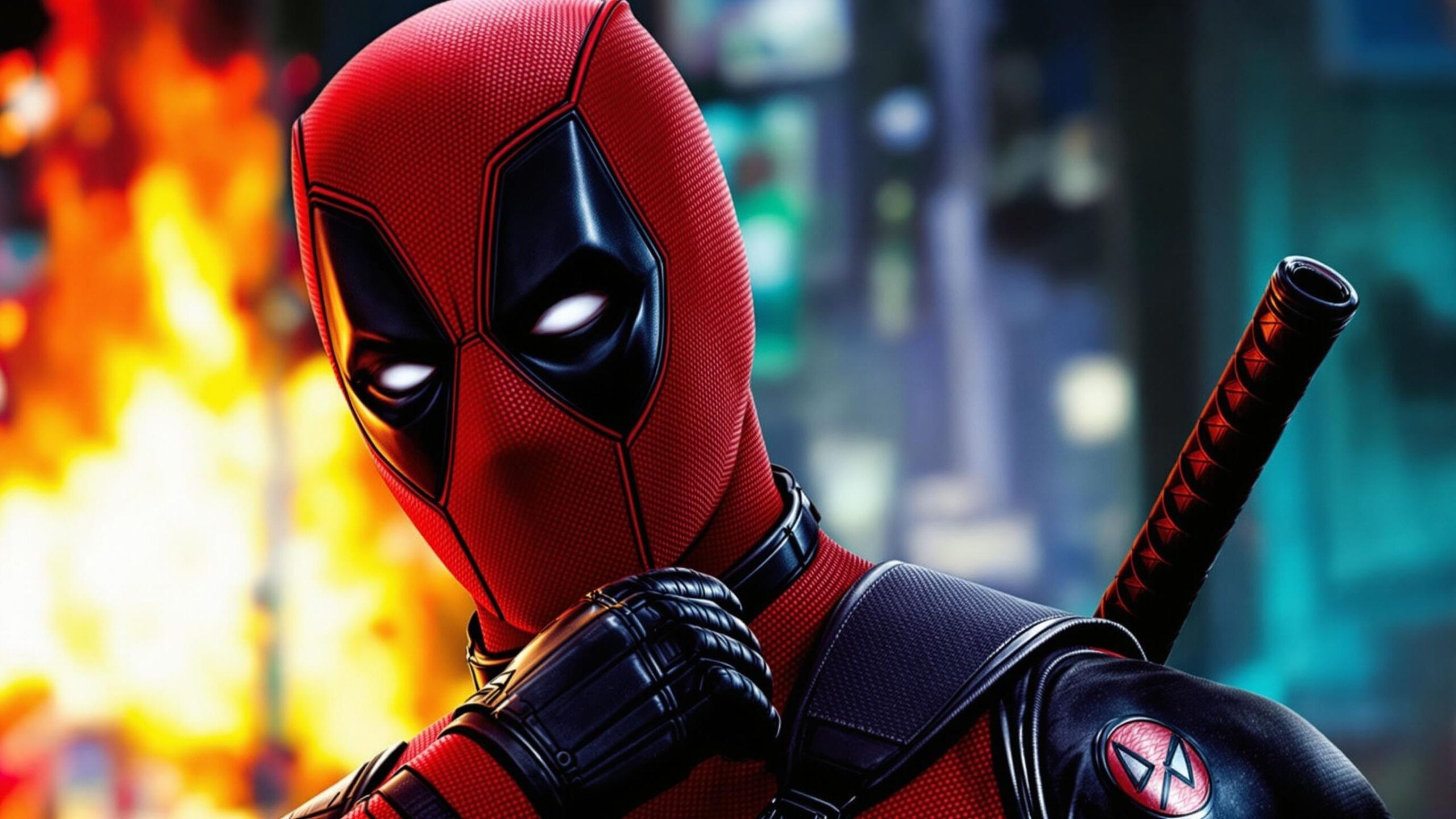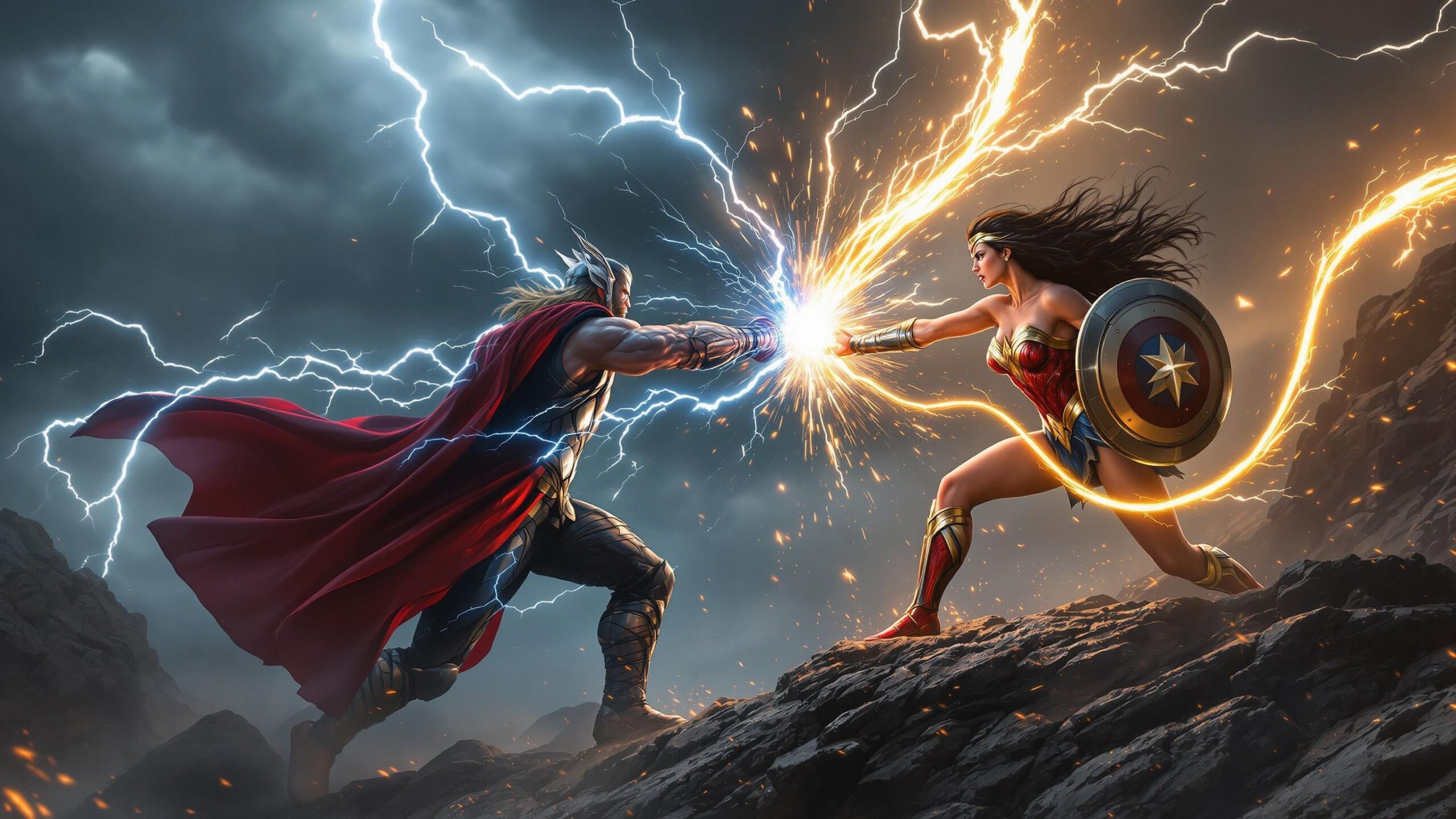The Butt of the Joke: Aquaman’s Rocky Start
Before he was swinging a trident and riding sharks into battle, Aquaman had a serious PR problem. For decades, he was the punchline of superhero jokes—a golden-haired guy in an orange scale shirt whose main claim to fame was “talking to fish.” On Super Friends, he was often the least intimidating member of the Justice League, zipping around in a seahorse like a guy who had taken a wrong turn at SeaWorld. No matter how noble his comic book origins were, mainstream pop culture turned Aquaman into a laughingstock. He became a meme long before social media made memes mainstream. Saturday Night Live skits, internet parodies, even other superhero shows gleefully roasted him. He wasn’t cool. He wasn’t taken seriously. And for the average viewer, the idea of an Aquaman movie—let alone a blockbuster action epic—sounded more like the setup to a joke than a legitimate studio pitch. Yet deep within the DC archives, Aquaman’s story was far richer. He was the King of Atlantis. A man torn between the surface world and the depths below. He had power over oceans, command of sea beasts, and a legacy of royalty, war, and magic. All it would take to change the world’s perception was someone bold enough to flip the narrative. Enter Jason Momoa.
Enter the Sea King: Jason Momoa Redefines the Role
When Warner Bros. cast Jason Momoa as Aquaman, jaws dropped—and not just from the sharks. The Hawaiian-born actor known for playing the grunting warlord Khal Drogo in Game of Thrones brought something entirely new to the role: swagger, attitude, and an untamed charisma that couldn’t be ignored. He didn’t look like the comic book version of Arthur Curry. He looked cooler.
With long, wild hair, tribal tattoos, and a devil-may-care grin, Momoa rebranded Aquaman from day one. This wasn’t a polite prince of the sea—this was a rock-and-roll king with beer in one hand and a trident in the other. And fans loved it. No more fish jokes. No more pity. This was an Aquaman you didn’t want to mess with.
His first appearance in Batman v Superman: Dawn of Justice was brief but intriguing. By the time Justice League rolled around, Momoa’s Aquaman had become one of the ensemble’s highlights. He wasn’t brooding like Batman or naïve like early Superman—he was brash, funny, and had a wild-man charm that brought fresh energy to the team. But it wasn’t until his solo outing that Aquaman truly made his splash.
Making Waves: The 2018 Blockbuster That Changed Everything
Aquaman (2018) wasn’t just a hit—it was a tidal wave. Directed by James Wan, the film dove headfirst into the mythology of Atlantis and never looked back. With vibrant underwater cities, kraken-sized battles, and some of the most colorful visuals in the DCEU, it embraced its fantasy roots with giddy confidence. The movie didn’t try to run from the character’s cheesy past—it flipped it on its head.
Jason Momoa’s Arthur Curry wasn’t trying to be anyone’s idea of a traditional hero. He was a guy who’d rather have a beer with his dad than wear a crown. But as the film unfolded, we saw his transformation from reluctant outcast to true king. His journey was part Indiana Jones, part Shakespearean epic, and part underwater Fast & Furious—and somehow, it all worked.
Audiences were treated to epic trident duels in magma arenas, high-speed chases across rooftops in Sicily, and even a drum-playing octopus named Topo. The film reveled in its own absurdity without ever losing heart. And at the center of it all was Aquaman himself—tough, compassionate, and finally, undeniably cool.
The result? Over $1 billion at the global box office. Aquaman had officially gone from the joke of the Justice League to its biggest solo success.
A New Hero for a New Era
Aquaman’s reinvention tapped into something deeper than just aesthetics. In many ways, Jason Momoa’s version of the character represented a shift in what audiences wanted from their heroes. He wasn’t the stoic symbol or the tortured genius—he was raw, emotional, and real. He didn’t have all the answers. He didn’t always want the responsibility. But when the moment came, he rose to it.
His Pacific Islander roots brought a new cultural flavor to the role, making Atlantis feel less like a fantasy realm and more like a living, breathing civilization. The film incorporated oceanic myths, tribal motifs, and themes of belonging and heritage that resonated with global audiences. Aquaman wasn’t just representing Atlantis—he was representing a diverse, multi-layered world that had long been overlooked in mainstream superhero tales.
And then there was the humor. Aquaman cracked jokes, dropped one-liners, and didn’t take himself too seriously. He was the guy who could ride a sea dragon into battle and still laugh afterward. In a cinematic universe that sometimes leaned heavy on the gloom, Aquaman brought the fun.
Beyond the Trident: Aquaman’s Cultural Ripple Effect
What happened after Aquaman’s success was a phenomenon. Suddenly, kids were dressing up as the King of the Seven Seas. Tridents became hot holiday gifts. People were talking about Atlantis like it was the next vacation hotspot. Aquaman, once reduced to “fish guy,” had become a legitimate icon.
Pop culture caught on fast. Memes now celebrated him instead of mocking him. Jason Momoa himself leaned into the fun, showing up to conventions, surprising fans, and embodying the role in and out of costume. He became a new kind of action star—one who wasn’t afraid to be goofy, emotional, and endlessly supportive of fans and causes alike.
Even environmentally, Aquaman became an unexpected symbol. His connection to the ocean made him a natural advocate for marine life and conservation efforts. Fans began associating him with real-world issues like plastic pollution and ocean preservation. Who would’ve guessed that the guy once mocked for riding dolphins would become a spokesperson for saving the seas?
The Sequel, the Hype, and the Future
Following the tidal success of the first film, anticipation for Aquaman and the Lost Kingdom surged. Audiences wanted more—more underwater magic, more Atlantean politics, more of Momoa’s irresistible charm. The sequel promised to dive even deeper into Arthur’s role as a king, a brother, and a protector of both the surface and the sea.
With returning characters like Mera, Orm, and the villainous Black Manta, the sequel expanded Aquaman’s mythos while raising the stakes. The ocean wasn’t just a backdrop anymore—it was a central character. And in a world of cinematic universes and multiverse madness, Aquaman remained refreshingly singular. He was the anchor to a new kind of storytelling—epic, heartfelt, and joyfully strange.
And beyond that? The possibilities remain vast as the ocean itself. Whether he returns for more sequels, joins a revamped Justice League, or becomes a multiverse-hopping legend, Aquaman’s cinematic future looks as bright as bioluminescent coral.
From Mockery to Majesty
Aquaman’s journey from the bottom of the pop culture food chain to billion-dollar royalty is one of the most satisfying arcs in superhero cinema. It wasn’t just about better costumes or CGI. It was about reimagining what the character could be—what he should have been all along. Powerful. Noble. Hilarious. Fearless.
It took vision, risk, and the perfect actor to bring him to life. But the end result is a hero who can stand shoulder to shoulder with Batman, Wonder Woman, and Superman—and do it all while wet.
So the next time someone jokes about talking to fish, remember the king who turned the tide. Aquaman may have started as a meme, but he rose to become a legend. And if that’s not a superhero story worth telling, we don’t know what is.
Long Live the King of the Seas
Aquaman’s cinematic glow-up is proof that no character is ever truly doomed to obscurity. With the right mix of humor, heart, and creative vision, even the most misunderstood hero can rise—and rise big. Thanks to Jason Momoa’s magnetic performance and James Wan’s bold direction, Aquaman isn’t just cool now. He’s iconic.
The oceans have a new champion. The throne has a new king. And the superhero world will never look at a seahorse the same way again.




